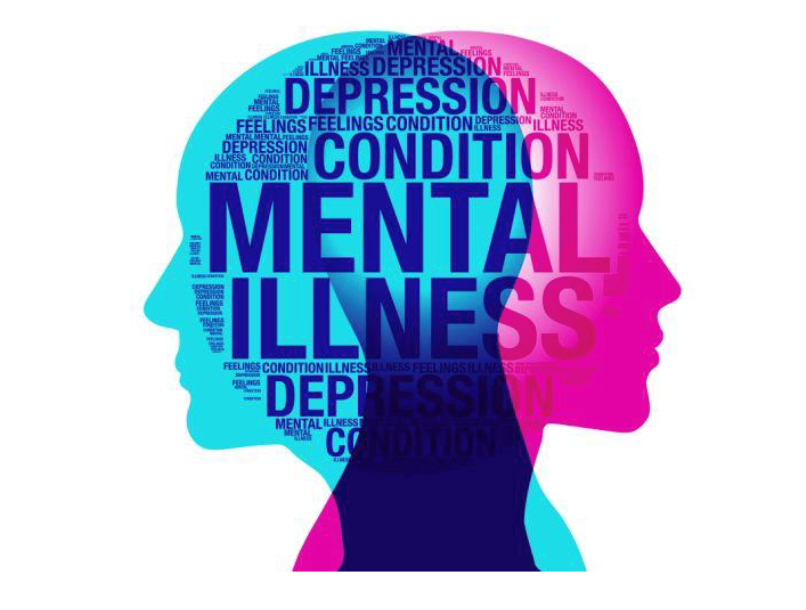Proven Mental Health Services Tailored to Your Requirements
Proven Mental Health Services Tailored to Your Requirements
Blog Article
Exploring the Connection Between Nourishment and Mental Wellness Renovation
The implications of our dietary selections on mental health have been significantly identified by health experts and researchers alike. As we browse the complicated landscape of modern-day way of livings, uncovering the nuanced relationship between nutrition and psychological wellness improvement may hold the secret to opening a much deeper understanding of our cognitive and emotional strength.
Influence of Food on Mood
The connection in between nutritional selections and mood regulation is a vital aspect of comprehending the effect of food on psychological health. Research has shown that specific foods can affect natural chemical task, affecting state of mind and emotional states. Foods rich in omega-3 fatty acids, such as fatty fish, walnuts, and flaxseeds, have been linked to reduced prices of anxiety and improved mood regulation.
Additionally, complex carbohydrates found in entire grains, fruits, and veggies can help regulate blood sugar levels, which in turn can have a favorable influence on state of mind stability. On the various other hand, diets high in refined foods, sugar, and saturated fats have been associated with a raised danger of anxiety and mood problems.
Furthermore, the gut-brain connection plays a substantial function in mood law. The intestine microbiome, influenced by the foods we consume, can interact with the brain via the gut-brain axis, impacting mood, stress and anxiety degrees, and overall psychological well-being. Making mindful and nutritious nutritional options is important for keeping a healthy and well balanced state of mind.

Important Nutrients for Anxiousness

Moreover, the amino acid tryptophan, located in foods like turkey, eggs, and nuts, is a precursor to serotonin manufacturing, a neurotransmitter understood for its role in promoting feelings of calmness and well-being. Vitamin B complex, especially B6 and B12, are additionally essential for preserving a healthy nerve system and may aid reduce anxiousness signs and symptoms.
Incorporating these crucial nutrients right into a well-balanced diet can have a favorable effect on managing anxiety and enhancing general psychological wellness.
Dietary Strategies for Anxiety

One nutritional technique for managing clinical depression is focusing on foods rich in omega-3 fatty acids, such as fatty fish, flaxseeds, and walnuts. Omega-3 fatty acids have actually been connected to reducing inflammation in the brain and improving neurotransmitter feature, which can favorably impact state of mind. Additionally, raising the intake of fruits, vegetables, whole grains, and lean healthy proteins while decreasing the intake of processed foods and sugars might assist in alleviating depressive signs.
In addition, maintaining sufficient levels of vitamin D, either with sunshine direct exposure or supplementation, is vital for sustaining psychological health and wellness. Vitamin D shortage has been related to a boosted risk of clinical depression, making it vital to guarantee enough intake of this nutrient. By integrating these nutritional approaches, people might properly match standard therapies for clinical depression and enhance their total wellness.
Gut-Brain Axis and Mental Wellness
Concentrating on the detailed connection in between the stomach system and mental health and wellness, the Gut-Brain Axis plays a pivotal function in affecting cognitive features and emotional health. The Gut-Brain Axis is a bidirectional interaction network in between the central anxious system and the enteric nerve system, linking the emotional and cognitive centers of the brain with peripheral digestive tract functions. This axis is managed by an intricate interaction of neural, immune, endocrine, and metabolic paths.
Research suggests that the composition of gut microbiota, the varied area of microorganisms residing in the gastrointestinal system, can have an extensive influence on mental health. Imbalances in digestive tract microbiota, called dysbiosis, have actually been related to problems such as clinical depression, anxiousness, and even neurodegenerative conditions. In addition, the digestive tract microbiota plays an essential function in the production of neurotransmitters like serotonin, which is vital for controling state of mind and emotional actions.
Maintaining a healthy and balanced intestine microbiota with a balanced diet abundant in fiber, fermented foods, and probiotics is vital for supporting psychological wellness (Mental Health Services). Strategies targeted at maximizing the Gut-Brain Axis supply appealing avenues for boosting psychological health and cognitive feature
Nutrition's Duty in Cognitive Function
Given the considerable impact of the Gut-Brain Axis on psychological health, comprehending exactly how nourishment impacts cognitive function ends up being vital in advertising general wellness. Nourishment plays a vital role in cognitive feature by offering crucial nutrients that support mind health and wellness and optimum efficiency.
Key nutrients such as omega-3 fats, minerals, anti-oxidants, and vitamins are known to improve cognitive abilities, consisting of memory, emphasis, and problem-solving abilities. Omega-3 fatty acids, discovered in fatty fish like salmon and nuts, have actually been linked to boosted memory and cognitive feature. Anti-oxidants, abundant in veggies and fruits, aid safeguard mind cells from damage triggered by complimentary radicals, therefore maintaining cognitive function.
Additionally, a balanced diet plan rich in entire grains, lean healthy proteins, fruits, and vegetables can positively affect cognitive feature by maintaining blood sugar level degrees and providing sustained energy to the mind. Alternatively, you can try this out diets high in processed foods, saturated fats, and sugars have actually been related to cognitive decrease and damaged brain feature. Therefore, making educated dietary choices is vital for preserving optimal cognitive function and general mental health.
Verdict
Finally, the partnership in between nutrition and mental health and wellness is complicated and diverse. The influence of food on state of mind, vital nutrients for stress and anxiety, dietary techniques for anxiety, the gut-brain axis, and nutrition's role in cognitive function all play crucial roles in psychological wellness. Understanding the link in between nutrition and mental health improvement is essential for advertising total health and attending to mental wellness problems. Further research and awareness in this field are essential for progressing treatments and therapies.
The ramifications of our dietary selections on psychological health have been progressively recognized by health and wellness specialists and researchers alike. As we browse the complex landscape of modern-day lifestyles, uncovering the nuanced relationship between nourishment and mental health and wellness improvement might hold the trick to opening a much deeper understanding of our cognitive and emotional resilience.
Building upon the necessary nutrients that sustain psychological health, particularly in managing stress and anxiety problems, the focus now moves towards examining dietary strategies for dealing with clinical depression.Concentrating on the complex link in between the intestinal system and psychological health, the additional resources Gut-Brain Axis plays an essential function in affecting cognitive features and emotional wellness (Mental Health Services). Comprehending the link helpful site between nutrition and psychological wellness renovation is crucial for advertising total wellness and addressing psychological wellness concerns
Report this page